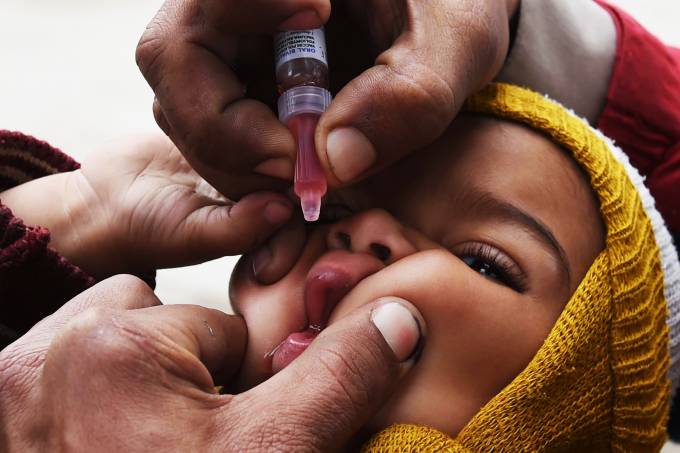
On Wednesday, the UK Health Protection Agency (UKHSA) announced that a vaccine-derived polio virus was detected in sewers in north and east London in February and April, suggesting it was spread between individuals. Officials did not report any new cases, but urged people to get vaccinated.
The last case of the disease was detected in the UK in 1984 and had been eradicated by 2003.
London has one of the worst polio vaccination rates in the country, with almost a third of children not getting their first vaccine by age 12 months and almost a quarter not getting a vaccine at 24 months. Even though vaccines are routinely given to children, about one in 10 are not vaccinated and about 30% are not promoted to teens.
In unvaccinated populations, the disease can lead to rare but serious complications. It can infect the spinal cord and the base of the brain, causing paralysis, usually in the legs, that develops over hours or days. If the respiratory muscles are affected, it can be fatal. Officials worry that even fully vaccinated people could catch the virus and spread it without realizing it.
The disease can be spread through poor hand hygiene and, less commonly, coughing and sneezing. The virus multiplies in the intestine and infected people excrete large amounts of virus in their stool for several days.
Experts believe the virus was probably imported from someone who had recently received an oral polio vaccine in another country, with live virus that was shed in feces, into London’s sewer system. was entering. The stress was detected in routine government inspection of sewage water.
“Vaccine-derived poliovirus has the potential to spread, especially in communities where vaccine intake is low,” said UKHSA Consultant Epidemiologist Vanessa Saliba. “We are conducting an urgent investigation to better understand the extent of this transmission and the NHS have been asked to immediately report any suspected cases to the UKHSA.”
About two years ago, countries in Africa announced that they were poliovirus-free, making Afghanistan and Pakistan the only countries in the world where polio is still endemic. A $1 billion public-private plan is underway from 2021 and aims to end the disease once and for all in the world by 2026.



